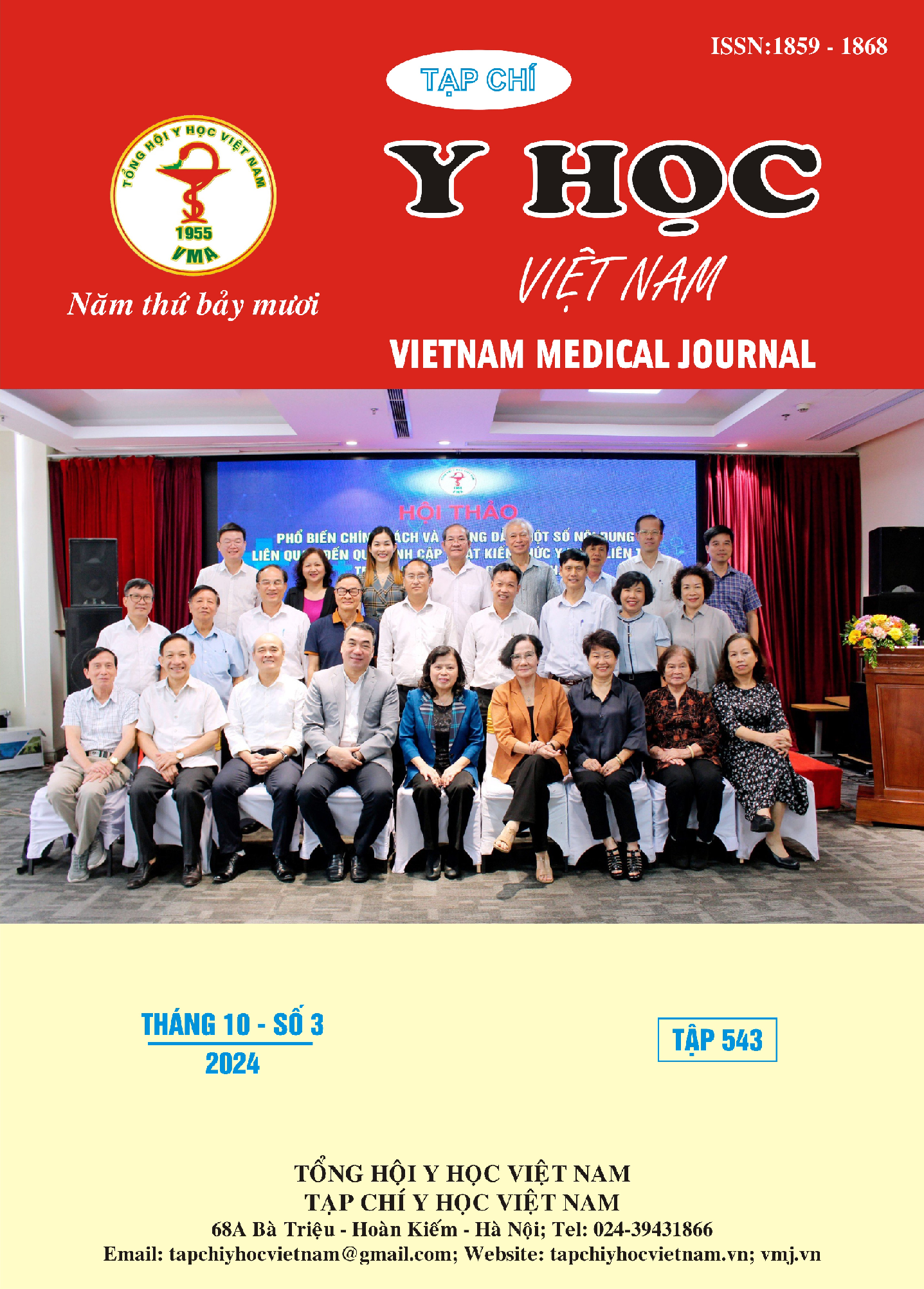THE RELATIONSHIP BETWEEN ROTATOR CUFF INJURY AND CLINICAL SYMPTOMS ON 3.0 TESLA MAGNETIC RESONANCE IMAGING IN SHOULDER IMPINGEMENT SYNDROME
Main Article Content
Abstract
Objectives: The purpose of this study is to evaluate the relationship between rotator cuff tear on 3.0 Tesla magnetic resonance images and clinical symptoms in patients with shoulder impingement syndrome. Subjects and methods: This is a cross – sectional study of 60 patients with shoulder impingement syndrome was scanned 3.0 MRI at 354 Military Hospital from April 2023 to April 2024. Patients were assessed for pain grades using VAS and SPADI scales. Results: There was a relationship between age and rotator cuff tears, p < 0.05. There was no relationship between rotator cuff tears and gender and injured shoulder side, p > 0.05. The average VAS and SPADI scores in the group with rotator cuff tears were significantly higher than the group without rotator cuff tears, p < 0.05. The number of teared tendons did not affect the level of pain, p > 0.05. Conclusion: In shoulder impingement syndrome, there were significant positive relationships between the rotator cuff tear and the level of shoulder pain according to VAS and SPADI scores, however, the number of injured tendons did not impact on the level of shoulder pain.
Article Details
Keywords
Shoulder Magnetic Resonance Imaging; Rotator Cuff; Shoulder Pain.
References
2. Koganti D.V, Lamghare P., Parripati V.K et al. (2022), "Role of magnetic resonance imaging in the evaluation of rotator cuff tears", Cureus, 14(1).
3. Bhargavi Kasineni Jaya, Lakshmi B Seshu (2019), "Role of Magnetic Resonance Imaging in rotator cuff pathologies".
4. Needell Steven D, Zlatkin Michael B, Sher JS et al. (1996), "MR imaging of the rotator cuff: peritendinous and bone abnormalities in an asymptomatic population", AJR American journal of roentgenology, 166(4), pp. 863-867.
5. Seeger Leanne L, Gold Richard H, Bassett Lawrence W et al. (1988), "Shoulder impingement syndrome: MR findings in 53 shoulders", American Journal of Roentgenology, 150(2), pp. 343-347.
6. Curry Emily J, Matzkin Elizabeth E, Dong Yan et al. (2015), "Structural characteristics are not associated with pain and function in rotator cuff tears: the ROW cohort study", Orthopaedic journal of sports medicine, 3(5), pp. 2325967115584596.


